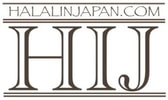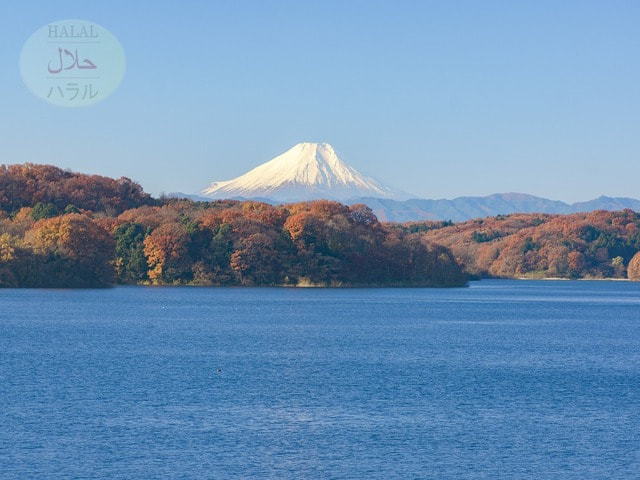The growth of Halal market cannot only be explained by the increase of Muslim population, as there are multiple factors such as the development of the Islamic economy, influx of western culture, as well as shrinking population and financial distress in the developed countries. But, let’s see what we as consumers can do for further expansion of the Halal market in Japan and eventually in global market that favors everyone involved! Japan's Population Is ShrinkingOne may wonder why in recent years getting the opportunity to work and live in Japan has become easier for foreigners! Japan's population has been shrinking for a couple of decades now, and if current trends continue it will lose a third of its population in the next 40 years. The world's third-largest economy’s population began falling in 2004 and now is one of the fastest aging countries on the planet. Japan’s population declined by a record 244,000 people in 2013, meaning more people is dying than being born. A report in 2012 warned that by 2060 the number of Japanese will have fallen from 127 million to about 87 million, of whom almost 40% will be 65 or older. In mid-march of this year, due to a labor shortage, 7-Eleven franchisees in Japan started testing shorter store hours. It isn't just 7-Eleven that's feeling the pinch of the current Japanese labor shortage; other major convenience store chains like Lawson and Family Mart are also experimenting with shorter opening hours, as are McDonald's, Royal Host (an owner of several popular 24-hour restaurant chains in the country) and a number of other businesses. The pinch being felt in the retail/fast food industry is part of a wider labor shortage that is putting the squeeze on employers all across the Japanese economy. From construction to tech to basically every sector of the economy, Japan's labor shortage is at a 45-year high and the country's shrinking population ensures it's only going to get worse. If current trends continue the country will be over 6 million workers short by 2030 with the overall workforce forecast to drop to half its current size by 2060. One of the government’s solutions for this dilemma is mass immigration. The government must also find ways to raise the fertility rate from its current 1.39, one of the lowest in the world, up to 2.07. An estimate from United Nations indicates that without raising its fertility rate, Japan would need to attract about 650,000 immigrants a year to stabilize country’s population —at around 100 million (from its current 127 million). Evidently, it is expected that the number of foreigners including Muslims grow bigger as time passes. People who are looking for a place with a better quality of living and work opportunities will find their way through one of the programs created by Japan’s government, and start their new life somewhere in the country, helping themselves by helping the economy. Japan also has been making an effort to boost tourism as it prepares for the economic impact of a declining birthrate and aging society. According to Japan Tourism Agency in 2018, 31.2 million foreign nationals visited Japan and spent 41.5 billion dollars. The number of annual inbound visitors to Japan is expected to increase to 40 million by 2020, the year of the Tokyo Olympics. The travel industry is trying to develop quality tour programs for Muslim tourists to meet varied demands from them. So, not only the Muslims who come to work and live here, but millions who visit Japan will be looking for Halal foods, products and services. Are they going to find what they need comfortably? Major Exporters Of Halal ProductsYou might think of Halal as just being a set of Islamic rules about meat, but global Halal industry valued 2.2 trillion dollar, encompasses food, catering, clothing, medicine, cosmetics, banking, transportation and Tourism. From time to time new markets are added to the industry, and now you even have halal beverages which include Non-alcoholic Sparkling Halal Wine and Beer. Interestingly, none of the 57 Muslim countries are among the 10 biggest Halal exporters in the world. The major Halal exporters are; the U.S., Argentina, New Zealand, France, Thailand, India, Brazil, Austria and Singapore which their share of the Halal market is about 85 percent of the 2.2 trillion dollar. Halal is one of the most promising industries, fueled by the consumptive power of Muslims across the globe. In recent years countries like Malaysia, Indonesia, Turkey, Iran and Brunei have been trying to take advantage of this global market by securing Halal certification and expanding their Halal market. One might ask how consumers can assist the Muslim countries in their Halal market development, speeding up the progress!? How To Support Halal Market In JapanThere are not enough ethnic Halal shops in Japan, as it might be the case for Muslims living in any non-Muslim countries. A couple of decades ago there were very few Halal shops, and not many Halal restaurants in Japan especially outside big cities. Nowadays, Halal shops can be found in many cities, and where there’s none, people have the option to shop online. In addition, the two chains of supermarkets, Gyomu and Aeon have also started selling limited number of Halal foods. In terms of finding Halal products, living in Japan has become easier but far from comfortable. What can we do to expand the Halal market, making the daily necessities readily available throughout Japan, in a way that everyone involved benefit including manufacturers and traders, shops and supermarkets, and of course the consumer!? One way is to buy from both the ethnic Halal shops and the local retailers. If we buy only from the ethnic shops the Japanese manufacturers cannot afford to produce Halal products for the domestic market, and the Halal shelves in supermarkets will disappear. And if we buy only Japanese products from Japanese shops and supermarkets, the ethnic shops will go out of business as some have. Ethnic shops are selling Halal products made mostly by Muslim countries. With buying from ethnic shops, not only we are helping them to stay in business, but we are helping the manufacturers in Muslim countries to grow. This will have two positive outcomes. First, in the not too distant future, the Muslim countries will be among the top 10 major Halal product producers and exporters. Second, Japanese manufacturers and retailers see what is selling, and they try to produce the same kinds of products domestically. This not only would help those manufacturers, but here we might be able to buy the products cheaper and have more variety of Halal products available to us; products made by Japan and those coming from home. Fresh new tastes and brands will be added to the familiar ones! Supporting Muslim Friendly Hotels In JapanThe same kind of support applies to Hotels as well. Hotels and Ryokan in Japan are required to meet certain standards specified by the law to ensure a safe, comfortable stay for international visitors. As long as the Hotel you pick to stay is close to Halal restaurants, and preferably to a Masjid and /or a public prayer room which usually is the case in major Japanese cities, people can choose almost any hotel for their stay while traveling. There are many Muslim Friendly Hotels in Japan that travelers can choose from, or simply make your reservation using online booking services like Hotels.com. The staffs of these Muslim friendly hotels have received training for providing a proper environment which Muslims need to have while traveling. These hotels offer prayer rooms or rooms which have signs that show the Qibla direction. Some also rent prayer mat "Sadjadah". Among these hotels, some have arranged to have Halal certified restaurants within the hotel. Providing these services can be costly and its expansion depends on Muslim traveler’s choice. When possible, if people use Muslim friendly hotels for their stay in Japan, more hotels will be encouraged to join the club and provide services for Muslim guests. This can make the travel easy and easier for Muslims over the course of time, and also paves the way for those who want to invest in this business. The same way, by which Muslims can help to expand the market for Halal products, people’s choices in regard to Hotels also can encourage Muslim investors to enter into this market as some have. Although it is a very competitive market, but few Muslim owned guesthouses have been in business for a while now, and hopefully with traveler’s support they can grow in quantity as well as quality. ConclusionIslam in Japan does not have a long history. To make the living and traveling in Japan easier, and lower the price of Halal products and services, we need to use the existing supply chain, while demanding to restructure the network by the choices we make. Halal consumers have a significant role to play for the faster growth of Halal market in Japan, which can also lead to empowering the Muslim community in adhering to their beliefs. While we are thinking about our present daily requirements, we should take steps to prepare an environment, where our children and newcomers have a better living quality in Japan as a Muslim:
Promote Halal For A Healthier & Stronger Community Sources
1 Comment
2/25/2023 18:05:42
assalamu alaikum
Reply
Leave a Reply. |
Halal In Japan
|
|



 RSS Feed
RSS Feed





